On the occasion of the 57th independence anniversary, the President of the Republic of Burundi announced the suspension of contributions to the 2020 elections. A collection not always popular that has accumulated the budget bulk for the upcoming elections.
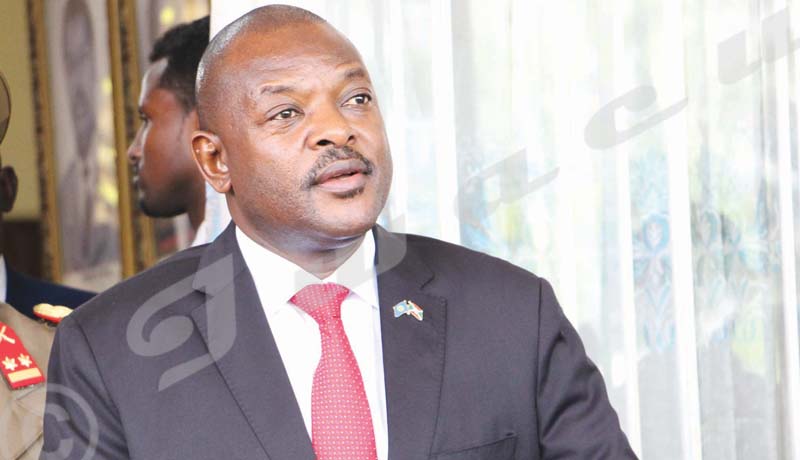
President Pierre Nkurunziza
More than 90% of the budget allocated to the organization of the elections has already been collected. In its general budget 2019-2020, the government has allocated a sum of money for elections. “The calculations were made and Burundians contributed largely to the success of the elections,” said Jean Claude Karerwa, Spokesman for Burundi President.
President Pierre Nkurunziza gave, then, the final whistle to the collection of contributions that Gitega said to be “voluntary”, but that some people considered “imposed”.
“The necessary budget is almost reached, we have judged better that Burundians and civil-service employees stop contributing, and that only volunteers and those who have not yet done so continue,” says the Head of State in his statement on the eve of the 57th independence anniversary.
A few months before the elections, with the impoverishment, it was necessary to put an end to that unpopular measure generating unease and annoyance. A way to get in the easy graces of the population.
Burundi is among the poorest countries in Africa with a poverty rate of 74.7% according to the World Bank statistics. With poverty especially in rural areas, people could no longer afford to put their hands in an empty wallet.
Moreover, abuses around the collection increased. In some communes, people complained that they no longer had access to public services unless they give proof of contribution.
The contribution campaign was launched by President Nkurunziza himself.
The population should finance the 2020 elections so as not to depend on traditional donors such as the European Union and United States. Relations between Burundi and those countries have been broken off since 2015 and Gitega has tried to escape from their pressure.
Contributions abrogated but taxes rise
The suspension of contributions to the elections is a relief to a tired population. However, it will not escape the tax hike.
The President of the Republic congratulated the fact that 84% of the state budget was collected in the country. He expects that in 3 years, 100% of the budget will come from internal contributions. “This means more tax liability for the population that struggles to survive,” said an anonymous tax expert.
Pill could no longer pass
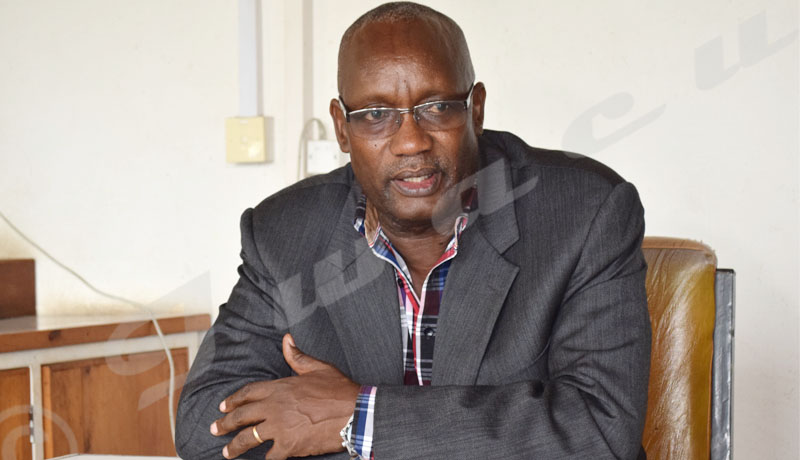
Tharcisse Gahungu: “the government initiated the dialogue framework which is the National Committee on Social Dialogue”.
The word “voluntary” emerged in the publicity around this project launched by the Head of State. To the skeptics who already saw it as a disguised tax, the government emphasized on the magic word “voluntary”.
Shortly after, Gitega has clearly announced its intentions. More strategies have been designed by the government. There was, therefore, a joint ordinance from different ministries on December 12, 2017 calling people to contribute to the elections. The unsalaried population, state officials and other organizations, all were called to contribute.
The latest strategy adopted by the government implements “a system of competition among communes,” as said by Pascal Barandagiye, Minister of Home Affairs, in a letter addressed to all governors. He explained that it was an evaluation exercise of communes based on a single criterion: contributions of the population. A way to encourage the grassroots administration to “boost” contributions from their citizens.
Those who may have suffered more from those contributions are civil-service employees. Many of them live on bank overdrafts and credits. Multiple cascading contributions only aggravated the situation. Salary deductions, contribution in families, contribution for their children, and often a collective contribution organized by their ministry. The pill could no longer pass.
It is a relief to workers according to Tharcisse Gahungu, Chairman of Burundi Confederation of Trade Unions (COSYBU). “Since those measures had been taken without consultation with civil-service employees,” he says. Mr. Gahungu is optimistic though workers’ salary increase after annual assessment was not foreseen in the general budget of the State. “I think no one can challenge a presidential decision and budgetary revisions are made when necessary”.
What about the annual bonus?
The freeze of civil servants employees’ salaries was imposed in 2016. A joint Ministerial Order of Minister of Finance and Minister of Public Service to award compensation for wage disparity was issued.
Annual bonuses and other short-term allowances for civil servants have been suspended for four years (2016-2019).
The Burundian government indicated that the measure was taken to establish a fair wage policy and make adjustment of wage disparities.
The Presidency has announced that it will soon set up a technical commission composed of members of (Ministries of Finance and Public Service as well as trade unions) to implement the president decision suspending the freeze of public servants’ salaries.
“The rule should not be applied retroactively. Chiefs of various state services have to evaluate their employees so that annual bonus will be paid since January 2020,” said Jean Claude Karerwa, spokesman for President of the Republic.
For an expert in tax law, the president has put the Minister of Finance in an awkward position. He must find approximately BIF 20 billion not provided for the annual budget exercise 2019-2020 to pay annual bonus. “Otherwise, the budget can be revised according to the usual procedures”.
May 20,2020: D Day Minus 321
The countdown to the elections has been announced by the National Independent Electoral Commission-CENI. The presidential elections will take place on May 20, 2020. Politicians demand for the opening of the political space
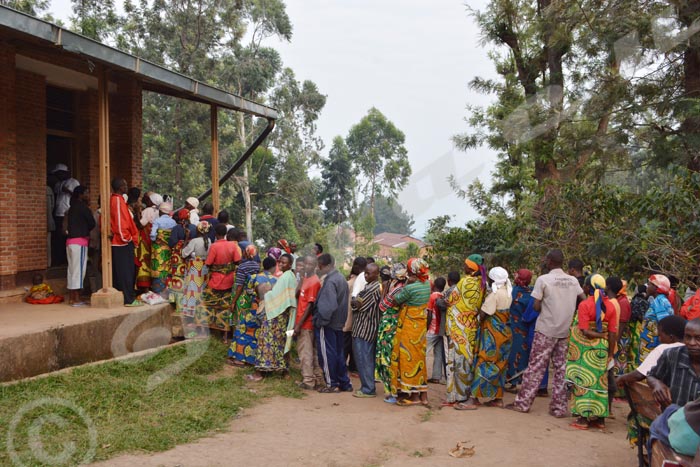
CENI presented the electoral timetable
The first round of the presidential elections will be held at the same time with the legislative and communal elections. A possible second round of the presidential elections is scheduled for June 19. The elected President will take oath on August 20, 2020.
The electoral timetable was presented 10 months before holding the elections. Pierre Claver Kazihise, chairman of CENI talks about the need to save time to prepare.
This calendar shows that Gitega government is not intimidated by some organizations, like the AU Peace and Security Commission, which called for the resumption of the dialogue as a prerequisite for holding free, transparent and peaceful elections.
Others expressed concerns over the current political context that is not conducive to conduct smooth elections. Over 300,000 Burundians are still living in exile, according to the United Nations High Commissioner for Refugees. Part of the political class is still in exile. The ruling power dismisses all damning criticisms and moves towards the 2020 elections.
The chairman of the opposition coalition in exile indicates that CENI has just published the electoral timetable without consulting the main opposition leaders. “Mr Nkurunziza and the ruling CNDD-FDD have just disrupted the ongoing dialogue process and restricted the political space”. The government has proved its will to go to the polls alone. It does not allow all the opposition to participate in the upcoming elections. “These elections will be worse than those of 2015”.
Agathon Rwasa believes that drawing up the election timetable is a good thing, but il also requires accompanying measures, such as the opening of the “political space”. For CNL chairman, the government must tell the administrative authorities and the police that members of the ruling CNDD-FDD youth wing ‘Imbonerakure’ are not policemen. He calls on the government to accept the help of foreign observers to make the elections more transparent.
UPRONA party is active. Its chairman indicates that his party will participate in the upcoming elections. He calls on all UPRONA members to participate massively to the elections.” We must respect the laws. All parties must enjoy the same rights and the Minister of the Interior must ensure that all political parties treat each other with respect. CENI must be neutral “.
Translated into English by Lorraine Josiane Manishatse and Egide Harerimana

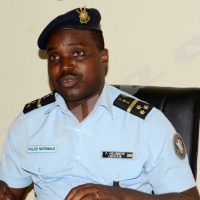
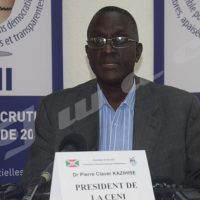
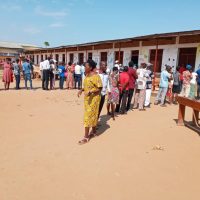
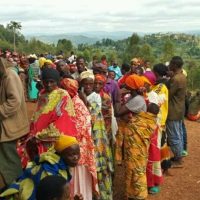
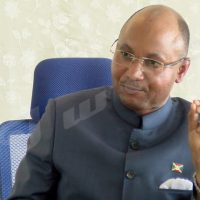













 IWACU Open Data
IWACU Open Data

